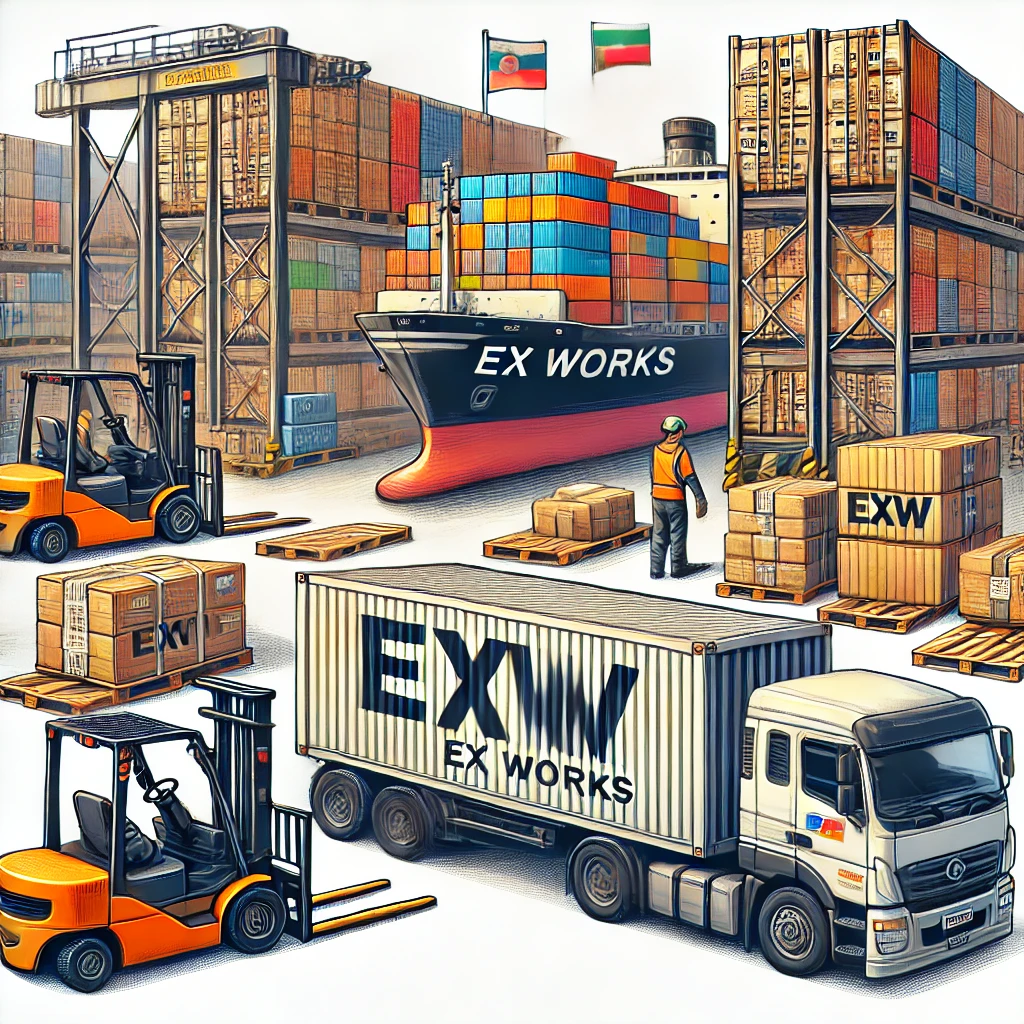An In-Depth Guide to EXW Meaning

What Does EXW Mean?
EXW (Ex Works) is an Incoterm that defines the seller’s minimum obligation in a trade agreement. Under EXW terms, the seller is responsible for making the goods available at their premises or another designated location (such as a warehouse or factory). The buyer assumes all responsibilities, including transportation, customs clearance, taxes, and other related costs, from that point onward.
Key Features of EXW
- Seller’s Responsibilities:
- Making the goods available at the agreed-upon location.
- Ensuring the goods are properly packaged and ready for pickup.
- Providing the buyer with necessary documents, such as invoices and packing lists.
- Buyer’s Responsibilities:
- Arranging and paying for transportation from the seller’s location.
- Handling export and import customs formalities.
- Bearing all risks and costs once the goods are made available by the seller.
- Cost Efficiency for Sellers:
- EXW is often chosen by sellers to minimize their involvement in transportation and logistics.
- Transfer of Risk:
- The risk transfers to the buyer as soon as the goods are made available at the agreed location.

Practical Uses of EXW
- For Small Businesses:
- EXW is ideal for small exporters who want to focus on manufacturing and leave logistics to the buyer.
- In Buyer-Controlled Shipments:
- When the buyer has a strong logistics network and prefers to manage transportation themselves.
- For Domestic and International Trade:
- EXW can be applied in both domestic and international transactions, providing flexibility in trade agreements.
Importance of EXW for Businesses
- Simplicity for Sellers:
- Reduces the seller’s involvement in shipping, making it easier to focus on production and sales.
- Cost Transparency:
- Provides clear delineation of costs and responsibilities, helping both parties understand their obligations.
- Flexibility for Buyers:
- Gives buyers control over the entire logistics process, allowing them to choose their preferred carriers and routes.

Challenges of EXW
- Risk for Buyers:
- Buyers bear the full risk and responsibility for the goods once they are made available, even before transportation begins.
- Lack of Support for Export Processes:
- Sellers are not obligated to assist with export customs clearance, which can be challenging for buyers unfamiliar with local regulations.
- Potential Misunderstandings:
- Miscommunication about the pickup location or readiness of goods can cause delays and additional costs.
EXW vs. Other Incoterms
- EXW vs. FOB (Free on Board):
- In FOB, the seller’s responsibility extends to loading the goods onto a vessel, whereas in EXW, the seller’s obligation ends at their premises.
- EXW vs. DDP (Delivered Duty Paid):
- Under DDP, the seller takes on full responsibility for delivering the goods to the buyer’s location, including paying duties and taxes. EXW is the opposite, with minimal seller involvement.
- EXW vs. FCA (Free Carrier):
- FCA requires the seller to deliver the goods to a carrier or a named place, unlike EXW, where the buyer picks up the goods directly.

How to Use EXW Effectively
- Clear Communication:
- Clearly define the pickup location and ensure both parties agree on the terms.
- Logistics Planning:
- Buyers should have a robust logistics plan in place to manage transportation and customs processes efficiently.
- Documentation:
- Ensure all necessary documents are prepared to avoid delays or disputes.
Conclusion
EXW (Ex Works) is a straightforward Incoterm that simplifies trade agreements by minimizing the seller’s responsibilities and transferring most of the costs and risks to the buyer. While it offers significant advantages for sellers, buyers must be prepared to handle logistics and customs formalities independently. By understanding the meaning, features, and applications of EXW, businesses can use this term effectively to streamline their trade operations and foster successful international partnerships.
The Original Bill of Lading (OBL) is a physical document issued by the carrier to the shipper as proof of the contract of carriage. It is one of the most important documents in international shipping, enabling the transfer of goods, facilitating customs clearance, and ensuring legal ownership.
